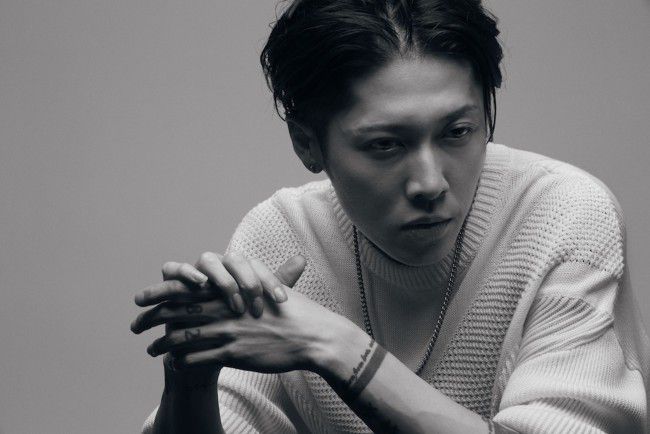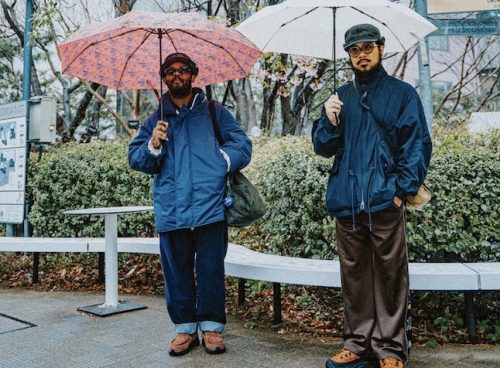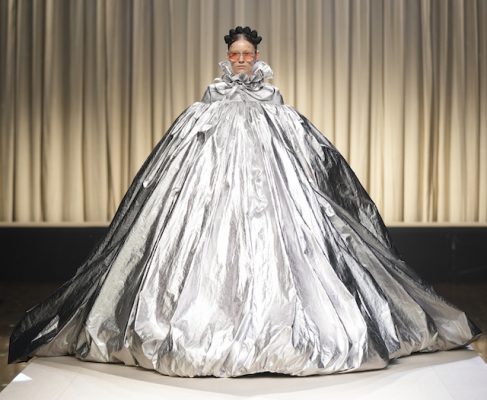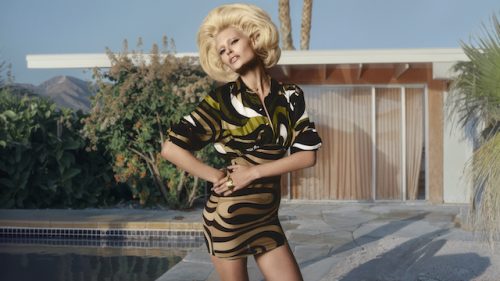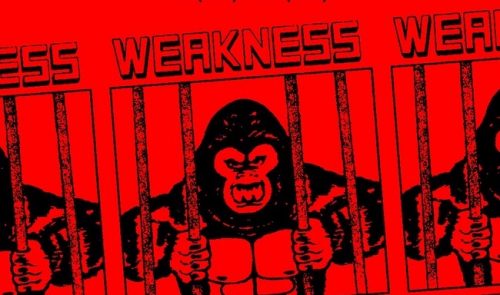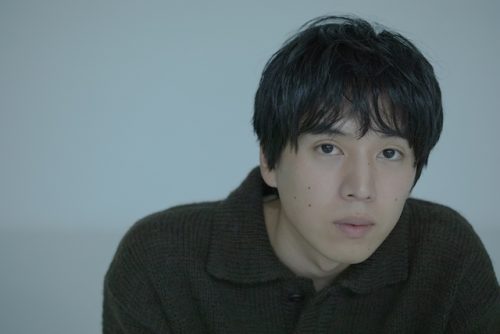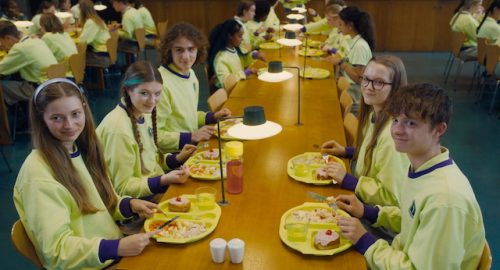——このアルバムの制作に入る流れはどういう感じだったんですか?
MIYAVI「各国で開催された映画のプレミア上映が終わったのが去年の12月で。紅白(歌合戦)でSMAPさんとのパフォーマンスのために年末に帰国して。そのタイミングで色々と神社にお詣りできたり、自分なりに映画のことも含めてやっと整理がついたんだよね。で、年始の便でロスに帰って、そのままナッシュビルに飛んでこのアルバムの制作に入った感じかな。そこでやっと自分がミュージシャンとしてクリエイティブなモードにフォーカスできた気がする」
——それこそ「Let Go」なんて自分自身を鼓舞するような曲で。
MIYAVI「うん、そうだね。アルバムの曲は全部そうだけどね」
——ドリュー&シャノンにプロデュースを依頼した経緯は?
MIYAVI「ペダルスティールのギタリスト、ロバード・ランドルフが好きでさ。たまたまアメリカのマネージャーとその話をしてたら、彼が昔マネージメントしてて、俺が好きなロバードの曲をプロデュースしたドリュー&シャノンも紹介しようと思ってたって言うわけ。だったら『是非!』ってなるでしょ。それで去年の8月に3日間だけナッシュビルに行ったの。向こうで初めてセッションして、もう、ぶっ飛んだね」
——どんなところに?
MIYAVI「街自体もそうなんだけど、音楽との距離感が、近い。はい、スタジオをブッキングしました、アンプをセッティングしました、エンジニアが来ましたとか、日本だと当たり前に用意されてるそういう行程はなんもない。飯を食いながら歌詞を書くし、トイレで曲を書くし、だから生活と音楽が完全に隣り合ってるわけ」
——ホントにライフワークとしてある。
MIYAVI「そうそう。要は、ここにペットボトルに入ったお茶があるじゃん。それを飲みたいと思う。その行為自体さえも曲に出来るんだよね。そういう点でも彼らとのセッションは刺激に満ちたものだった。たとえばレストランに入るでしょ。そこにいるウエイターが俺よりはるかに歌がうまいわけ(笑)小さな街にいろんなレコード会社やパブリッシングが密集していて。ミュージックロウっていう音楽ストリートがあって、その端っこにRCAビクターのBスタジオというのがあって。なんてことない建物なんだけど、そこで(エルヴィス・)プレスリーやジョニー・キャッシュがレコードしてたんだよね」
——言ったら、聖地みたいな。
MIYAVI「そうそう。やっぱり先人たちが残した気みたいなものが渦巻いてるわけ。うまく言葉にできないんだけど。そこでまた自分のグルーヴをイチから作っていった感じです。ジョー・グレイザーという世界的にも有名なギターテックがいるんだけど、ジョーにギターを見てもらってる時、部屋に小柄なおばさんが入ってきて。さらに若い青年が入ってきて、その子がギブソンのアコギを持ってたの。俺が『ちょっと貸して』って言ってバーッとスラップするでしょ。そしたらおばちゃんが『それはどうやってるの?』って訊いてきて、『こうやってやるんだよ〜。三味線からヒントを得たジャパニーズスタイルなんだ』なんて言ってたら、ジョーが部屋に入ってきて。おばちゃんについて『彼女は70年代に全米ナンバーワンになって、グラミーも獲ったすごいシンガーなんだよ』って言うわけ」
——うん(笑)。誰よ。
MIYAVI「『へぇ〜』ってなって、名前を訊いたら『ジャニス・イアン』って」
——えええええっ!!!! すげえ話だな。
MIYAVI「で、俺は知らないからさ。『OK,あとでYouTubeでチェックするね〜』とかなんとか言って(笑)」
——ヤバいなあ(笑)。
–How did you start production on this album?
MIYAVI: The promotional tour for each country’s movie premiere ended last December. At the end of the year, I went back to Japan to perform on Kohaku Uta Gassen with SMAP. I was able to visit some shrines, and with that sort of timing, it felt like the movie and everything else in my life was finally in order. I took a flight back to Los Angeles at the beginning of the year, then headed straight to Nashville to start the album recording sessions. I felt like I could finally focus and be creative as a musician there.
— It seems like “Let Go” was a song for encouraging yourself.
MIYAVI: Yeah, it was. All of the songs on the album are like that. Toward myself and also listeners.
— How did you end up asking Drew Ramsey and Shannon Sanders to produce?
MIYAVI: I’m a fan of this pedal steel guitarist, Robert Randolph. I had mentioned this to my American manager a few times, and he used to manage Robert, so he told me he was thinking about introducing me to Drew and Shannon, who had produced some of Robert’s songs. I was like, “Yes!” so I ended up going to Nashville for three days last August.
— What kind of place is it?
MIYAVI: Surrounded by groove. It feels like you’re always close to music. In Japan, usually you book a studio, set up your amp, and get an engineer and prepare the budget, release plan etc… Whereas in Nashville, you’re coming up with lyrics while you’re eating or writing songs even on the toilet – music and life live side-by-side.
— It sounds like music really is life’s work there.
MIYAVI: Yeah. The point is, I’m holding a plastic bottle filled with tea right now. I think I want to drink it. Just by doing that, I can make music. The sessions with Drew and Shannon were full of stuff like that. Everything ends up being a source of creation. For example, we went to a restaurant. The waiter there was a far better singer than I was. [Laughs] There are lots of record labels and publishing companies packed into a small town. At the end of this music street called Music Row, there’s the RCA Victor Studio B. It’s just a normal-looking building, but Elvis and many legends have recorded there.
–It sounds like heaven.
MIYAVI: Haha, It is. I can’t really explain it, but it feels like the spirits of our predecessors are all around. When I was there, I decided to start over and get my groove back. There’s this famous guitar tech, Joe Glaser, and when I was getting him to check out my guitar, this little old lady came in the room, and then a young kid with an acoustic guitar. I asked him to let me try it out, and I slapped it the way I usually do. The old lady asked, “How did you do that?” and I was like, “Like this. I got the idea from the shamisen; it’s Japanese-style!” And then Joe came in, and he told me, “She’s an amazing singer, and she had a number one hit in the US back in the ‘70s and won a Grammy.”
— Oh? [Laughs] Who was it?
MIYAVI: I was like “Really?” and when I asked who it was, he said it was Janis Ian.
— What!? That’s incredible.
MIYAVI: But you know, I had no idea who she was at that moment. Then I said, “Okay, I’ll check you out later on YouTube”. [Laughs]
— That’s crazy. [Laughs]
